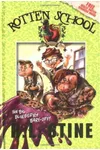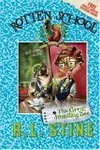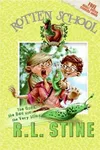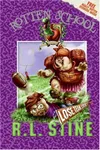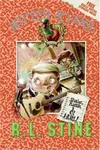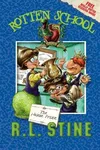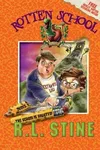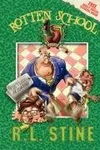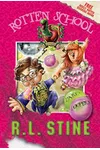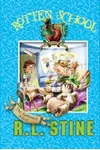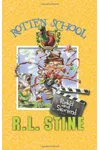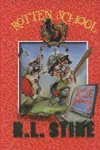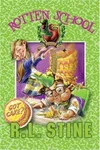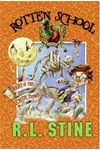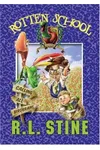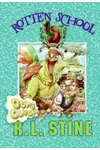Step into the zany halls of Rotten School, where fourth-grader Bernie Bridges orchestrates hilarious schemes that keep readers giggling! Written by R.L. Stine, the mastermind behind Goosebumps, this children’s book series swaps spooky scares for slapstick comedy, capturing the chaotic charm of boarding school life in the early 2000s. With its mischievous characters and lighthearted drama, Rotten School offers a nostalgic escape for kids and adults alike.
Unlike Stine’s horror hits, Rotten School dives into the world of pranks, rivalries, and schoolyard shenanigans, making it a unique gem in his vast bibliography. Ready to explore Bernie’s wild adventures? Let’s dive into the series’ origins, stories, and lasting appeal!
How Rotten School Began
R.L. Stine, often dubbed the Stephen King of children’s literature, launched Rotten School in 2005, a time when his Goosebumps series was already a global phenomenon. After decades of crafting horror, Stine returned to his comedic roots, inspired by his early days writing humor books as Jovial Bob Stine. The series, published by HarperCollins, was a bold shift, aiming to tickle the funny bones of young readers aged 8–12 with tales of boarding school antics. Illustrated by Trip Park, whose quirky drawings amplified the humor, Rotten School ran until 2008, delighting fans with its fresh take on Stine’s storytelling.
The Heart of Rotten School
Set in the fictional Rotten School, a boarding school founded by the eccentric I.B. Rotten, the series follows Bernie Bridges, a cunning fourth-grader with a knack for get-rich-quick schemes. Bernie, alongside pals like Belzer, Feenman, and Crench, navigates rivalries with the snobby Sherman Oaks from Nyce House dormitory. Each book, narrated by Bernie, bursts with toilet humor, pranks, and school drama, all wrapped in a light, comedic style.
Key titles include The Big Blueberry Barf-Off! (2005), where Bernie’s pie-eating contest spirals into chaos, and The Great Smelling Bee (2005), featuring a pet-related prank gone wrong. The Good, the Bad and the Very Slimy (2005) sees Bernie attempting to stay trouble-free for a dance date with his crush, April-May June, while Shake, Rattle, and Hurl! (2006) pits shy Chipmunk’s guitar skills against Bernie’s talent show ambitions. Themes of friendship, rivalry, and clever problem-solving shine through, with Stine’s witty prose and Park’s illustrations creating a vivid, laugh-out-loud world.
The series’ boarding school setting, complete with quirky teachers like Mrs. Heinie and Headmaster Upchuck, evokes a timeless sense of childhood mischief. Its slapstick humor, from slug races to smelly pets, appeals to kids who love gross-out gags, while Bernie’s charm keeps readers rooting for him, even when his plans backfire.
Why Rotten School Resonates
Rotten School carved a niche in early 2000s children’s literature by offering a comedic alternative to the era’s vampire-heavy trends. Though overshadowed by Goosebumps’ relaunch in 2008, the series won hearts among young readers, particularly reluctant ones, with its short, 100-page books and relatable humor. Fans on Goodreads praise its nostalgic vibe, with some revisiting it as adults for a dose of carefree fun. In 2019, plans for an animated series by Splash Entertainment hinted at its enduring appeal, though updates remain scarce.
The series showcases Stine’s versatility, proving he could master comedy as deftly as horror. Its influence lies in encouraging kids to embrace reading through laughter, making it a hidden treasure for fans of authors like Dav Pilkey or Jeff Kinney.
- Publication Years: 2005–2008
- Number of Books: 16
- Target Age: 8–12
- Illustrator: Trip Park
Grab The Big Blueberry Barf-Off! and dive into Rotten School’s hilarious world of pranks and friendships!
